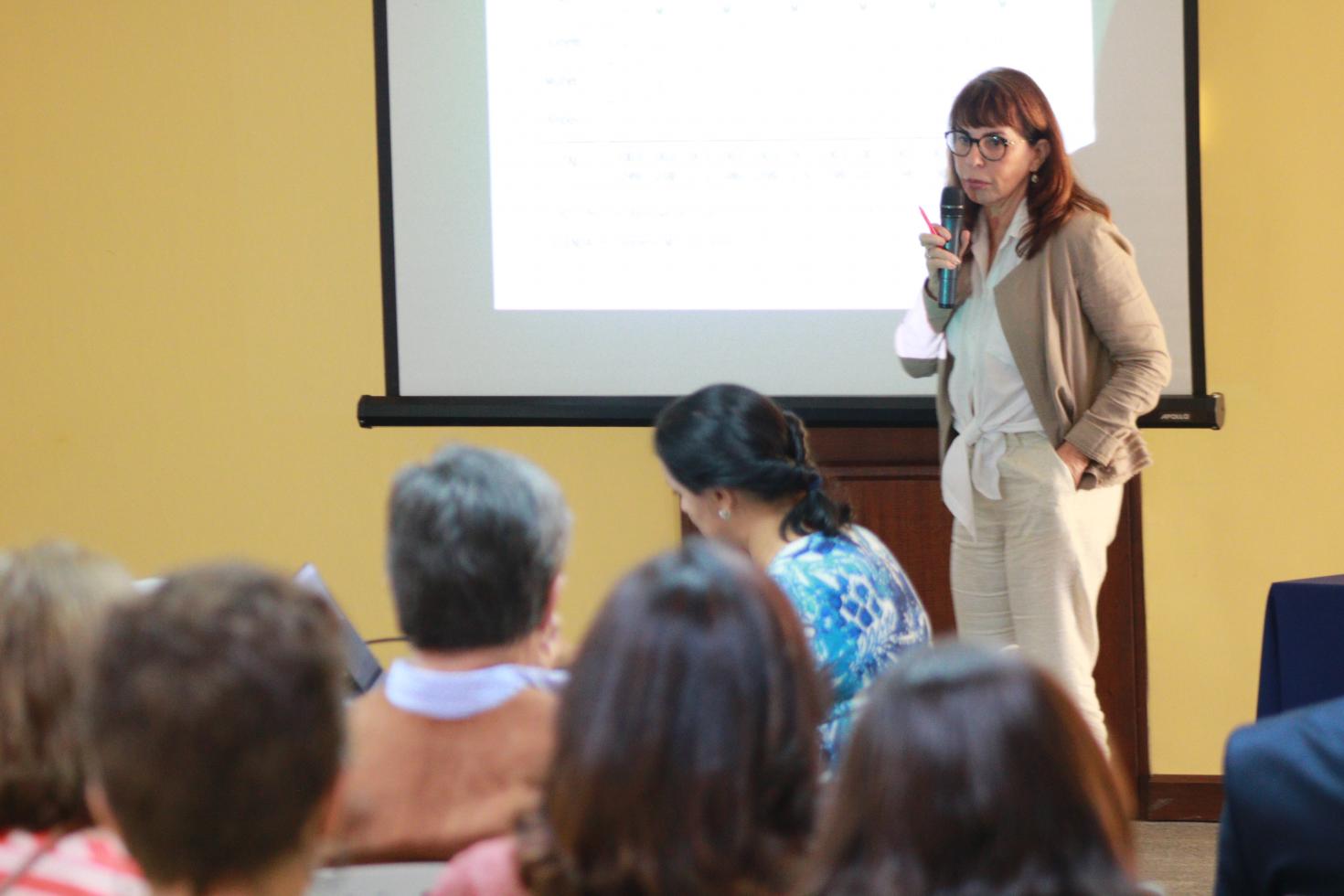Renowned Brazilian sociologist, Miriam Abramovay gave a conference on gender and rural women at the IICA Headquarters.

San José, Costa Rica. 20 July, 2018. (IICA). Given the importance that the Inter-American Institute for Cooperation on Agriculture (IICA) places on gender and youth issues as a route to genuine progress in agro development, it has organized a series of conferences to sensitize participants and to analyze and discuss issues related to these topics.
The first conference, entitled “Gender and Rural Women”, was presented by Miriam Abramovay, renowned sociologist and Coordinator for Youth and Public Policy at the Latin American Faculty of Social Sciences (FLASCO) in Brazil.
The expert began by issuing a spirited appeal for a clear distinction to be made between the concepts of ‘sex’ and ‘gender’. “Gender and sex are not to be confused”, she emphasized. “Gender was a concept created out of resistance to the category of ‘sex’, which is merely a biological fact. Gender is socially constructed, continuously, based on this sexual difference”.
Abramovay explained that rural women – despite their considerable knowledge about the agro sector – do not enjoy the same access to production goods and services as men do. Data from the Gender Equality Observatory of the Economic Commission for Latin America and the Caribbean (ECLAC) indicates that 38% of rural women do not earn an income of their own versus 14% of rural men. Furthermore, only 30% of them own land.
According to the professor, the phrases, “She helps out with the field work” or “She has no financial responsibilities”, reflect a general failure to acknowledge the numerous tasks that women perform in the rural areas and represent a core element of the gender relations dynamic.
Yet, undoubtedly, rural women play a fundamental role in the home, while also shouldering a considerable share of production labor. They are essential to the food security of countless rural homes in Central America and Mexico, according to ECLAC, and produce more than half of the world’s food.
Therefore, Abramovay reiterated that gender focus is not simply a matter of adding a feminine or gender equality component to an activity or project, or of increasing the participation of women, but rather, that the experience, knowledge, interests and needs of women must be taken into account in executing the project.
She maintained that, “We cannot say that a gender focus exists if we implement a project solely for women. It is not a matter of increasing women’s participation, but of empowering them. That is how unbalanced social and institutional structures can be transformed into egalitarian and equitable structures for women and men”.
Abramovay, who was born in Sao Paulo, Brazil, has served as Research Coordinator for the United Nations Educational, Scientific and Cultural Organization (UNESCO) and as a consultant to the World Bank and to the United Nations Children’s Fund (UNICEF). She is also a member of the Latin American Council of Social Sciences (CLACSO).
Manuel Otero, the Director General of IICA, participated in the presentation, reaffirming the Institute’s commitment to this component. He reflected that, “Gender and youth are cross –cutting themes in the core strategies of our 2018-2022 Medium Term Plan. We must move from talk to action, and therefore we are starting internally and then will take it further afield”.
More information:
Johana Rodríguez, Specialist in Sustainable Rural Development











